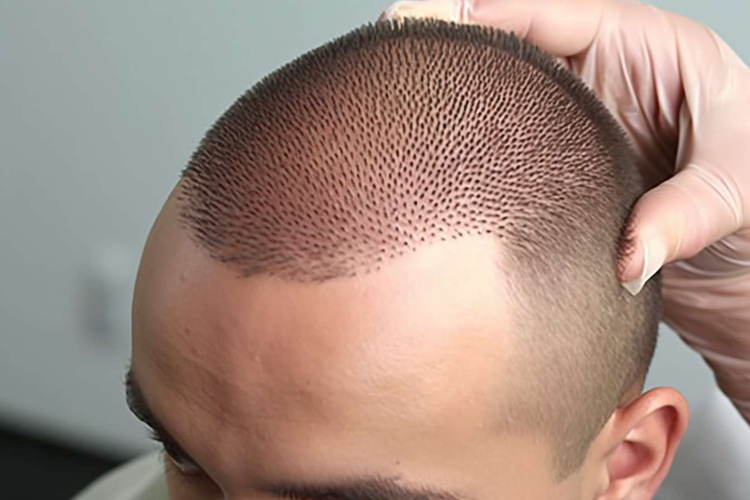People With Scalp Psoriasis Are Finding Relief Through a New Dermatologist-Recommended Approach That Targets the Real Cause
Living with scalp psoriasis can be frustrating - constant itching, flaking, and discomfort affect confidence and daily life. But recent progress in dermatology is giving hope to thousands. Specialists are now using new treatment methods that work beneath the surface to calm irritation, improve skin balance, and support natural healing. Many who struggled for years are finally seeing lasting improvements without harsh products or endless doctor visits

Living with scalp psoriasis can be a daily challenge that affects both physical comfort and emotional well-being. This chronic autoimmune condition causes the skin cells on the scalp to multiply rapidly, leading to the formation of thick, scaly patches that can be both painful and embarrassing. For years, many people have relied on treatments that only provided temporary relief, but recent developments in dermatological science are changing how medical professionals approach this condition.
How New Scalp Care Science Helps Manage Itching and Redness
Modern research has revealed that effective scalp psoriasis management requires targeting the inflammatory pathways that drive the condition. Unlike traditional approaches that primarily focus on removing scales and reducing visible symptoms, newer treatment methods work at the cellular level to interrupt the cycle of inflammation and rapid skin cell production.
Recent scientific breakthroughs have identified specific proteins and immune system components that play crucial roles in psoriasis development. By understanding these mechanisms, researchers have developed targeted therapies that can modulate the immune response without compromising the body’s natural defense systems. These treatments often incorporate gentle, non-irritating formulations that work effectively without the harsh side effects associated with older medications.
The latest treatment protocols emphasize the importance of maintaining the scalp’s natural barrier function while addressing inflammation. This approach has shown significant improvements in reducing both the frequency and severity of flare-ups, allowing many patients to experience longer periods of clear, comfortable skin.
What Triggers Scalp Psoriasis and How Modern Treatments Address It
Dermatologists have identified several key factors that can trigger or worsen scalp psoriasis episodes. Stress, certain medications, infections, and environmental factors can all contribute to flare-ups. Understanding these triggers has become essential in developing comprehensive treatment strategies that go beyond symptom management.
Modern treatment approaches take a holistic view of psoriasis management, considering both internal and external factors that influence the condition. Advanced diagnostic techniques now allow dermatologists to better assess individual patient needs and customize treatment plans accordingly. This personalized approach has proven more effective than one-size-fits-all solutions.
Contemporary treatments often combine multiple therapeutic modalities to address different aspects of the condition simultaneously. This might include topical treatments that target local inflammation, systemic therapies that modulate immune function, and lifestyle modifications that help prevent triggers. The integration of these approaches has led to more sustained improvements and better quality of life for patients.
Real Stories of Regained Comfort and Confidence
Many individuals who have struggled with scalp psoriasis for years are now experiencing significant improvements through these newer treatment approaches. Patient testimonials consistently highlight not only the reduction in physical symptoms but also the positive impact on self-esteem and social confidence.
One common theme among success stories is the importance of working with dermatologists who understand the latest treatment options and can provide ongoing support throughout the treatment process. Patients often report that the combination of effective medical treatment and proper education about their condition has been transformative.
The psychological benefits of successful treatment cannot be overstated. Many people describe feeling more comfortable in social situations, no longer worrying about visible flakes on their clothing or avoiding activities that might expose their scalp. This renewed confidence often extends to other areas of life, creating a positive cycle of improved well-being.
Treatment Options and Associated Costs
Understanding the financial aspects of scalp psoriasis treatment is important for making informed healthcare decisions. Treatment costs can vary significantly depending on the specific therapies recommended and individual insurance coverage.
| Treatment Type | Provider/Method | Cost Estimation |
|---|---|---|
| Topical Medications | Dermatologist Prescription | $50-$200 per month |
| Phototherapy Sessions | Dermatology Clinics | $75-$150 per session |
| Biologic Treatments | Specialty Centers | $1,000-$5,000 per month |
| Over-the-Counter Products | Pharmacies/Retailers | $15-$75 per month |
| Specialized Shampoos | Medical-Grade Brands | $25-$100 per bottle |
Prices, rates, or cost estimates mentioned in this article are based on the latest available information but may change over time. Independent research is advised before making financial decisions.
Long-Term Management and Prevention
Successful scalp psoriasis management extends beyond initial treatment to include long-term maintenance strategies. Modern approaches emphasize the importance of consistent care routines and regular monitoring to prevent flare-ups and maintain healthy scalp conditions.
Patients are now encouraged to work closely with their healthcare providers to develop sustainable management plans that fit their lifestyles and individual needs. This collaborative approach has proven more effective than sporadic treatment attempts and helps ensure continued success over time.
The future of scalp psoriasis treatment continues to evolve, with ongoing research into new therapeutic targets and treatment modalities. As our understanding of the condition deepens, patients can expect even more effective and personalized treatment options to become available.
This article is for informational purposes only and should not be considered medical advice. Please consult a qualified healthcare professional for personalized guidance and treatment.




